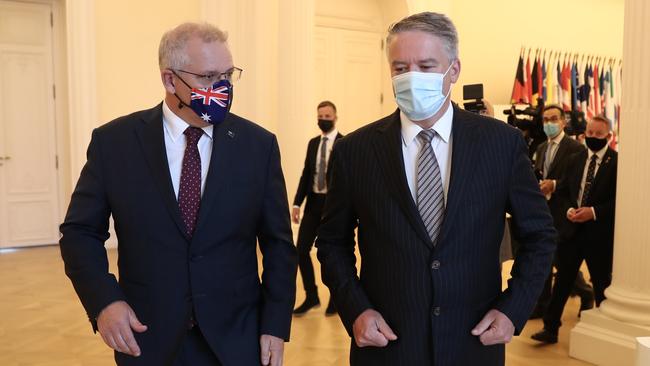Global unity crucial to establishing fair carbon price system

Effective in that ambitious efforts in individual jurisdictions actually help reduce global emissions instead of shifting them to other, more emissions-intensive parts of the world.
Fair in that every country around the world carries an appropriate and proportionate share of the burden, taking full advantage of all their opportunities to make their best contribution.
We need a unity of purpose, but also genuine open-minded global co-operation to achieve our overall global emissions reduction objective. Any measure that undermines the international competitiveness of a local economy, shifting activity, jobs and emissions elsewhere where for any given level of economic output they would be higher, does not help solve the problem. It would, in fact, make the global emissions problem worse.
That is why I have always argued that we need ambitious action on climate change in a way that is environmentally effective, economically responsible and that can be publicly supported over the long run.
An explicit price on carbon in a domestic economy that is not part of an appropriately comprehensive and consistent global framework risks counterproductive distortions and carbon leakage. Right now, only one-fifth of global emissions are subject to any sort of carbon price.
It’s a risk the EU is clearly also very conscious of. It’s why it has allocated free permits to its industry and it’s why, as the EU seeks to increase its level of ambition and effort further, it is actively exploring the introduction of a Carbon Border Adjustment mechanism – to prevent any such negative spillovers.
Every EU country has access to a very significant open internal market ensuring a level playing field across that market. Australia does not have open access to such a large internal market. For Australia as an export-oriented trading nation, with a comparatively smaller domestic market, it is even more important that any measures to maximise emissions reductions do not create negative trade distortions that would risk shifting emissions overseas.
Climate action, to be effective, including any approach to carbon pricing, has to be appropriately globally co-ordinated, while recognising the different circumstances and the different opportunities in different parts of the world to make their best contribution.
That is what I argued in my first speech in the Senate, back in 2007, and that was the message out of the report of the Senate committee inquiry I chaired into the Carbon Pollution Reduction Scheme, and was the underlying principle of my contributions on climate action all throughout my period in the Senate.
It remains my view today.
We should not just accept, but embrace the fact that different countries and regions around the world, with different starting positions and different circumstances, have different opportunities to make their best contribution to our global emissions reduction mission.
But we need much better data tracking of the cost and outcomes achieved through various measures to help better inform judgments about a globally more coherent approach to climate action.
Transparent reporting of climate policy outcomes achieved in different jurisdictions, based on rigorous objectively comparable data, including on implicit carbon pricing – via regulatory measures, subsidies, direct support for technology innovation or other such measures – will help drive better performance everywhere. That is because of the scrutiny it will generate and the platform for evidence-based cooperation it provides. It can also help build trust about the equivalency of effort using a different mix of policy measures to cater for different circumstances.
In the absence of an appropriately comprehensive global approach to the explicit pricing of emissions, countries need to use every other sensible policy lever available to help reduce emissions in their jurisdiction in a way that makes a positive net contribution to the global emissions reduction effort.
What I am arguing now, as I did then, is that we need a multilaterally agreed, globally co-ordinated framework accounting for the comparative cost, effort and impact of different policy approaches.
It is something the Organisation for Economic Co-operation and Development can help deliver, in the same way we helped deliver reform to our international tax system to make it fairer and work better in a digitalised and globalised world economy.
The OECD/G20 Inclusive Framework on international tax reform has delivered a successful multilateral outcome on what was a very difficult issue. It was able to bring 136 countries around the world, representing more than 90 per cent of global GDP, including all G20 nations, on to the same page.
We need an inclusive framework on equivalent effort to address climate change – so we can get to global net zero in a way that is effective and fair, which facilitates a lifting in ambition and effort while avoiding trade distortions and carbon leakage.
Mathias Cormann is the Secretary-general of the OECD and a former Liberal senator for Western Australia and Coalition finance minister.



We need a transition to net-zero emissions by 2050 that is effective and fair.